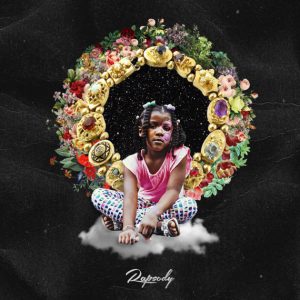After years of there being one indisputable “queen of rap,” the throne now sits perpetually empty, waiting for a female emcee to prove herself worthy of the top spot. While there are a few deserving candidates, Rapsody attempts to strong-arm the title of the best from her peers with the release of her second studio album, “Laila’s Wisdom.”
In fact, Rapsody is proving to be a threat to every rapper, regardless of gender. On “Laila’s Wisdom,” the North Carolina native puts on a rapping clinic as she unleashes a barrage of bars intermixed with some dynamic storytelling and witty wordplay.

Photo courtesy: HipHopDX
This album has more bars than Rikers Island. Instead of spending time on intricate melodies and flows, Rapsody prioritizes showcasing her superb wordplay line after line. Usually, when an artist tries to spit slick lines at such a high volume, there are duds; however, Rapsody consistently amazes on every song with her sweet delivery. Even on the tracks featuring the legendary Black Thought and the ethereal Kendrick Lamar, Rapsody manages to not only keep up but also raise the bar for everyone involved. Pinpointing the best individual lines from this album is nearly impossible, but a definitive high comes on “You Should Know.” On this track, Rapsody proceeds to verbally abuse the beat until Busta Rhymes finally calls the match and intervenes.
While Rapsody’s bars are all lyrical jabs to the face, the most interesting aspect of her writing has to be her ability to craft stories within the music. The ultimate example is the song “Jesus Coming,” in which Rapsody raps from the perspective of a victim of overdose, a mourning parent and a deceased soldier. The scenes she creates with her words alone are so poignant that they allow the listener to step into the shoes of the fictional characters and feel their emotions. Rapsody does the smallest things to help flesh out her characters, such as using two different voices on the end of “Ridin’” in order to create dialogue between a cop and a host at a party.
In terms of production, “Laila’s Wisdom” may be one of the most polished rap albums this year. Listening to the project is one smooth experience that never makes you question the sequencing of the songs. The production also does a great job of covering up Rapsody’s one flaw, which is her inability to create compelling hooks. The producers of the album accomplish this by incorporating a myriad of beat switches into the songs to keep things from becoming stagnant. For instance, on “Chrome (Like Ooh),” the instrumental abandons its metallic banging sound midway through the song and adopts a smoother identity that gives Rapsody’s verses some contrast.
Although the album makes use of a number of samples, the apex has to be the sample used on “Jesus Coming.” The sorrowful sample interrupts Rapsody repeatedly in order to remind the listener that there is no time left. The way that Rapsody raps around these interruptions shows off her creativity as she uses the sample to finish her sentences, voice a character in her story, and reinforce her thoughts.
Not only is the production immaculate but so are the featured artists. Kendrick Lamar gives Rapsody her money’s worth by spazzing with multiple flows on “Power.” Black Thought is equally impressive on “Nobody” as he builds a verse laden with pristine rhyme schemes. Even though Busta Rhymes’ verse is nowhere near as flashy as the former and latter, he laces an already dreamy instrumental with tender words of affection. However, the real MVPs may be Anderson .Paak and BJ The Chicago Kid, who both appear on two songs each. The two bring the hooks on songs like “Knock On My Door” and “OooWee” that help break up all the rapping on the album.
“Laila’s Wisdom” is truly Rapsody’s coming-out party. For 14 songs, she serves spine-tingling bars while feeding the listener ample amounts of substance. Her remarkable skill has flown under for far too long. Rapsody is one of the best the genre has to offer and should not be pigeonholed by her gender.






